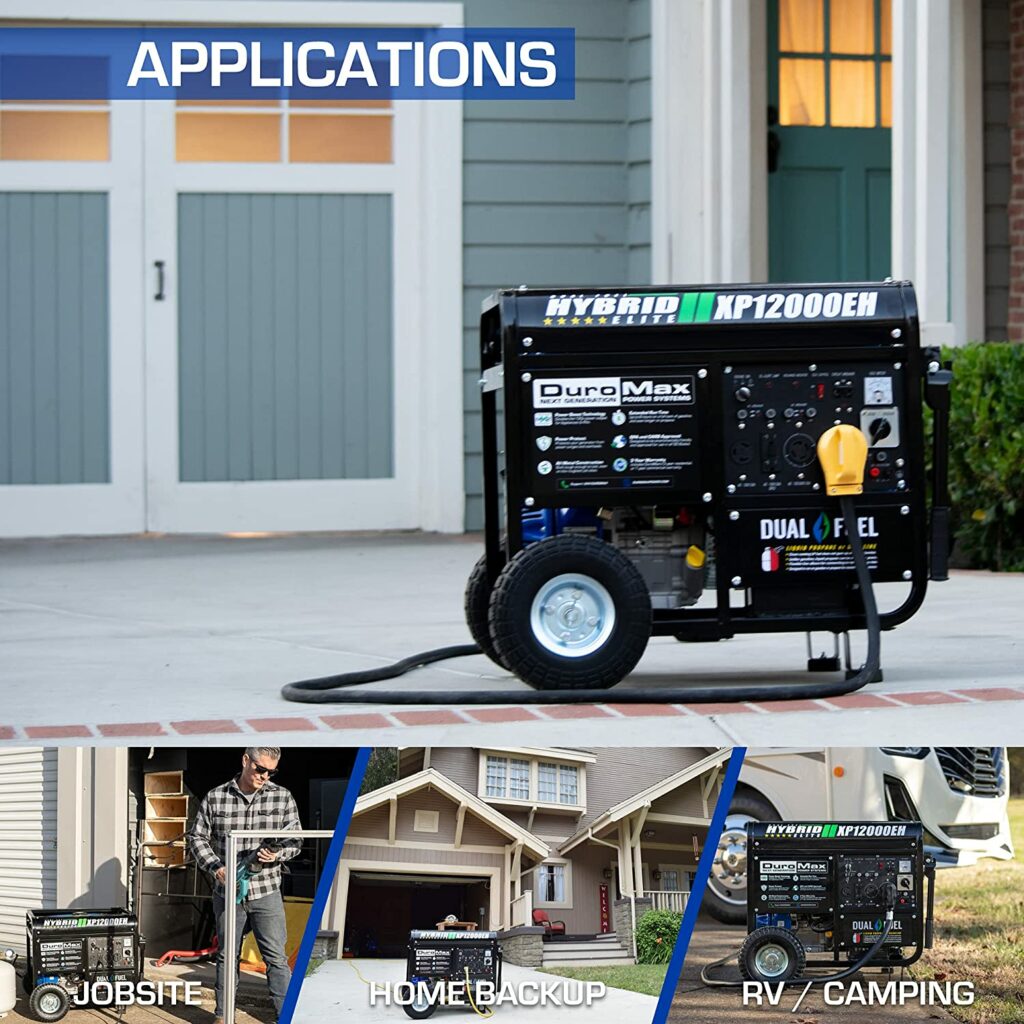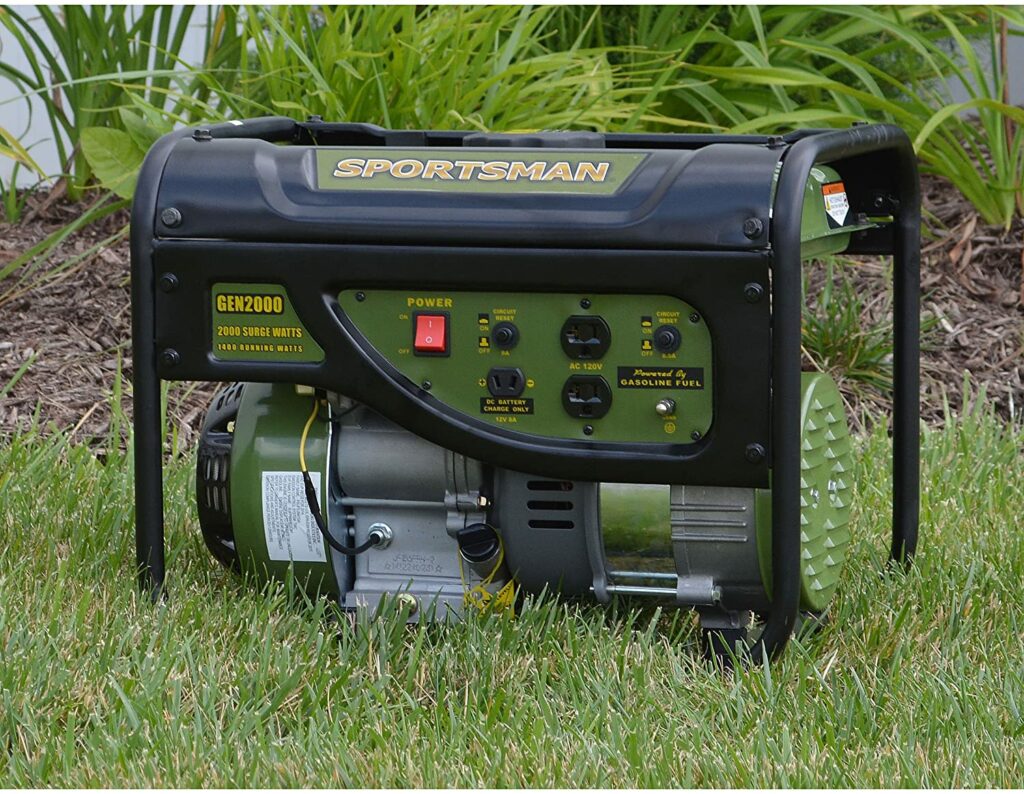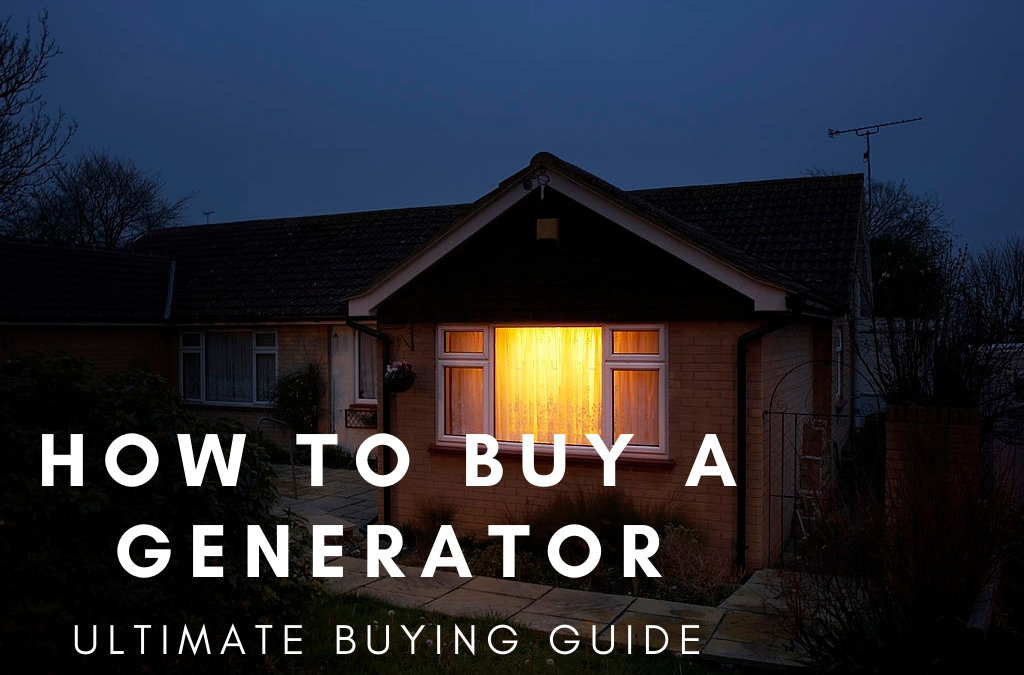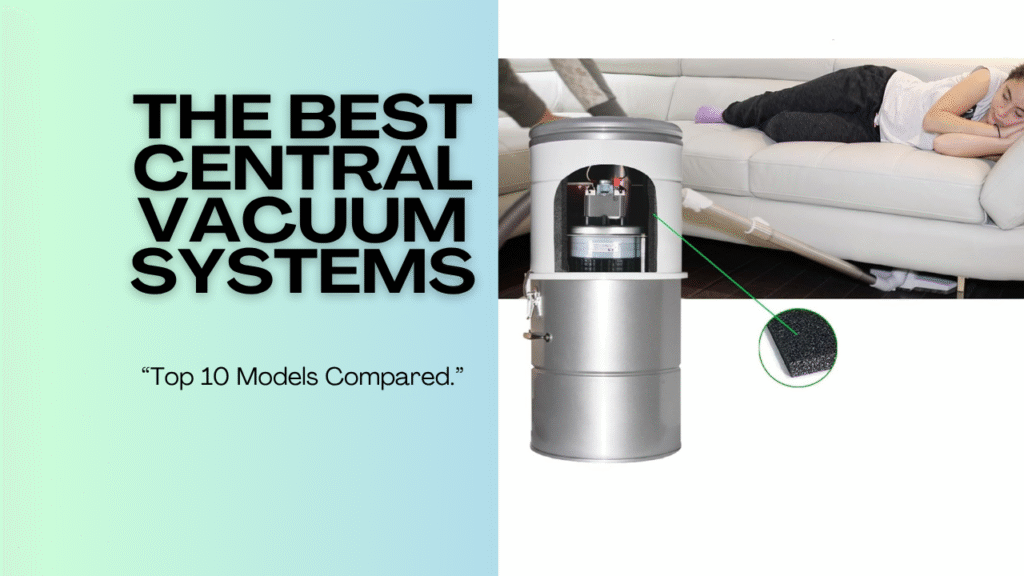Table of Contents
How to Buy a Generator
The convenience of having a backup power source isn’t inexpensive. Before purchasing a backup generator, as with any other large-ticket item, do your homework. You’ll know what’s out there and how different solutions meet your needs if you do your study.
There are important questions to consider when deciding on the size of a standby generator to purchase and the type of fuel to use. If you don’t ask these questions, you’ll end up with a backup generator that either doesn’t fulfill all of your power needs or is too expensive to run.
How do Generators work?
When the generator system detects that it restores utility power, your home automatically switches back the utility power, and turns off the standby generator until the next time you need it.
Having a standby is easy. Generators should be services to guarantee that it is ready in the case of a power loss.
Recommended for You: Best Home Standby Generators
Standby Generators and Their Applications

During a power outage, a standby generator will keep your family safe and comfortable by preventing food spoiling. Learn how to select the perfect one for your home.
A power outage is an unpleasant experience, whether it is anticipated or occurs unexpectedly. It can mean ruined food, a gloomy home, and a lack of many of your typical conveniences. It will make sense to invest in a home standby generator after carefully considering the cost.
The benefit of a home backup generator called the “next must-have appliance,” is sometimes overstated. What you might be unsure about is which of the numerous options is the greatest standby generator for your home.
Today, we’ll address the most frequently asked concerns concerning standby generators and assist you in selecting the proper one for your needs. We’ll concentrate on the best home standby generators.
Let’s start because there’s a lot to cover.
Advantages of Owning a Generator
Purchasing a home generator will serve as a backup to the municipal power grid that provides your electricity. When faced with a long-term outage, they can meet the electrical needs of the residence. Here are some of the benefits of owning a generator.
Available Electricity During Blackouts
Accidents may occur within your locality that may cause the power to go off. Alternatively, the power shut downs for a while because of maintenance and repairs.
You, however, don’t have time to spare in a project you were working on or you do not want to risk the food in the fridge going bad especially if the outage takes longer than anticipated.
A backup generator will sustain these needs and many more if you have enlisted it in your possession.
Produces Power During Construction

This could be applied before you have your house built or when you are upgrading or constructing extensions on your property.
The use of a home generator, in this case, will save on the total construction costs and is used to perform tasks like nail guns and spray guns used in painting among other construction electrical appliances.
Emergency Backup During Natural Disasters
When disasters like tsunamis, Earthquakes, Hurricanes, and tornadoes hit, they have a high propensity for interfering with your local power source physically.
In such cases, not only will there be natural disasters but emergencies as some people may need help once the crash has started showing signs of subsiding.
This is one of the main reasons many people in many countries have for purchasing a backup generator.
Recommended for You: Best Water Distiller 2021 | Why Distilled Water is Good for You
How to Pick the Best Home Backup Generator for You
The convenience of having a backup power source isn’t inexpensive. Before purchasing a backup generator, as with any other large-ticket item, do your homework. You’ll know what’s out there and how different solutions meet your needs if you do your study.
There are important questions to consider when deciding on the size of a standby generator to purchase and the type of fuel to use. If you don’t ask these questions, you’ll end up with a backup generator that either doesn’t fulfill all of your power needs or is too expensive to run.
Choose a Fuel Source
The first step in selecting which type of standby generator is suitable for your home is to figure out what fuel source you’ll be using.
The quantity of power and rated capacity your home will require in an emergency determines your fuel choice. Standby generators with a power output of 22kW or less are usually air-cooled and run on natural gas or propane.
Generators with a power output of more than 20 kW are normally liquid-cooled. These are commercial-style generators that run on natural gas, propane, or diesel.
In an emergency, generators with a rated capacity of 20kW or above will power your entire house, ensuring that your home will remain completely functioning no matter what happens.
Generator Sizes and Capacity

Automatic Standby Generators come in a variety of sizes (capacities). A generator can power some or all of the circuits and appliances in your house or workplace, depending on its power capability, which is measured in kilowatts (KW).
We may provide various sized generators to perform in one of the following ways, depending on the appliances and amount of electricity necessary for your building:
Only use your home’s crucial electric circuits. Run all of the circuits and appliances in your home, but keep in mind that it may not be able to do it all at once. Run all of your home’s circuits and appliances at the same time.
Naturally, the larger the generator’s capacity, the more expensive it is.
Power and Wattage Requirements
How do you figure out how much power you’ll need? It all boils down to your home’s appliances.
There are two fundamental power metrics for generators:
- Watts Required to Turn on an Appliance – Turning on an appliance consumes significantly more energy than merely keeping it running. The initial, momentary power requirement is measured in starting watts. This is also known as startup power, maximum wattage, or peak power.
- Running Watts – Running watts (also known as continuous watts) refers to the wattage requirements of an appliance under regular operating conditions.
The average dwelling requires 5,000 watts of electricity.
Choosing a Transfer Switch
Your backup power system’s automatic transfer switches are critical. They enable your standby generator to automatically start when the power goes out.
By constantly monitoring active utility power, transfer switches enable your generator to offer instantaneous electricity to your home. Your transfer switch will start the engine to supply your home with generator power whenever a power outage is detected.
Generators and transfer switches work together to provide dependable backup power for your home. Because they rely on each other to provide backup power, getting the correct switch is just as important as getting the right standby.
You’ll need to know the amperage of your electrical service panel to find the correct transfer switch for your home and generator. This information can be found on the primary breaker in your home
Standby Generator Maintenance Checklist
You’ll need to create a standby generator maintenance schedule to keep it in good operating order if you want it to power your home when you need it. The manufacturer’s maintenance requirements are in your backup generator’s owner’s manual when you purchase it. This should be used as a checklist for emergency generator maintenance.
Run Your Generator Every Week

You wouldn’t buy a car and then leave it in the garage for months at a time. The same can be said for a backup generator. It only takes a few minutes once a week to keep your backup generator in good working order. Once a week, we recommend running your generator at full power for 15 to 20 minutes.
This permits the engine’s lubricating oil to get up to operating temperature and circulate throughout the engine. Both of these are critical to the generator’s continuing operation.
Double-check that the standby generator that there were no notifications or alarms after you began it. Ensure that the generator is adequately fueled and that no fuel leaks exist. It’s also a good idea to put your generator to “auto” mode so that it will start immediately if there is a power outage.
Then make sure the circuit breaker is switched off. If everything is in working order, you can rest easy knowing that your generator is ready to go at the first hint of a power outage.
Examine the Oil and Coolant Levels.
Once a month, take a few minutes to check the engine oil and coolant levels. In fact, one of the most prevalent causes of a generator’s failure is a lack of oil or coolant. To prevent engine damage, many generators contain a low-oil shutdown mechanism.
A faulty and overheating engine will arise from a lack of coolant. Check the oil and coolant levels first if your generator appears to be failing.
It’s simple to check the coolant and oil levels. Simply look at the level in the catch tank within the engine to determine the coolant level. If it’s getting low, top it up with a bit more coolant.
Locate the dipstick, which usually has a yellow ring or handle at the top, to check the engine oil level. Replace the dipstick after wiping it clean with a towel.
Final Thoughts
Power outages are an inevitable part of life for everyone. Especially during hurricane season, Mother Nature likes to remind locals that she is in charge. Investing in a standby generator for your home is a wise decision.
When you decide to buy a backup generator, your home will be comfortable and your life will not be disrupted no matter what the weather throws at you.































